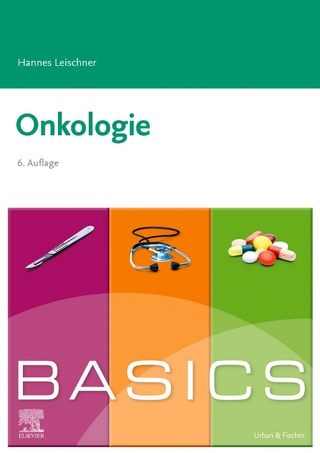
Cancer Metastasis
Cambridge University Press (Verlag)
978-0-521-88721-2 (ISBN)
Metastasis is responsible for a large burden of morbidity and mortality among cancer patients, and currently few therapies specifically target metastatic disease. Further scientific dissection of the underlying pathways is required to pave the way for new therapeutic targets. This groundbreaking new text comprehensively covers the processes underlying cancer metastasis and the clinical treatment of metastatic disease. Whereas previous volumes have been compendia of laboratory research articles, the internationally renowned authors of this volume have summarized the state-of-the-art research in the metastasis field. A major section covers the cellular and molecular pathways of metastasis and experimental techniques and the systems and models applied in this field. Subsequently, the clinical aspects of the major cancer types are considered, focusing on disease-specific research and therapeutic approaches to metastatic disease. The focus is on novel pathophysiological insights and emerging therapies; future directions for research and unmet clinical needs are also discussed.
David Lyden is the Stavros S. Niarchos Associate Professor in Pediatrics and Cell and Developmental Biology at the Children's Cancer and Blood Foundation Laboratories at Weill Cornell Medical College. He is a Neuro-oncologist at Memorial Sloan-Kettering Cancer Center. Also, Dr Lyden is an Investigator of the Champalimaud Foundation, the first research, prevention and treatment center for metastatic disease. In 2007, he received the Presidential Medical Distinction Award from President Cavaco Silva of Portugal. Danny R. Welch is Leonard H. Robinson Professor of Pathology at the University of Alabama, Birmingham. He actively holds numerous titles in various organizations, such as Co-Chair of the Program and Education Committees of American Association of Cancer Research, editor-in-chief of Clinical and Experimental Metastasis, and Chair of the Cancer Genetics Study Section at the National Institute of Health. Dr Welch has published six books and holds five patents. Bethan Psaila is a Research Fellow at Imperial College of Medicine in London and Weill Cornell Medical College of New York. Dr Psaila is the recipient of a Fulbright Scholarship in Cancer Research and a Kay Kendall Leukaemia Fund Travelling Fellowship.
Overview: biology is the foundation of therapy; Part I. Basic Research: Introduction to basic research; Section 1. Models and Tools for Metastasis Studies: 1. Animal models of cancer metastasis; 2. Drosophila and zebrafish: genetic models for cancer metastasis; 3. Computational models; 4. Intravital microscopy to visualize invasion and metastasis; Section 2. Genes: 5. Metastasis-promoting genes; 6. The role of metastasis suppressor genes in metastasis; 7. Stromal-derived factors that dictate organ-specific metastasis; 8. Metastasis genes: epigenetics; 9. Germline variation and other host determinants of metastatic potential; 10. The influence of aging and cellular senescence on metastasis; Section 3. Various Properties of Cancer Cells: 11. The continuum of epithelial mesenchymal transition - implication of hybrid states for migration and survival in development and cancer; 12. Apoptosis, anoikis, and senescence; 13. Metastatic inefficiency and tumor dormancy; Section 4. Stromal Cells/Extracellular Matrix: 14. Role of inflammation in metastatic progression; 15. Proteolytic cascades in invasion and metastasis; 16. Role of matrix metalloproteinases in tumor invasion and metastasis; 17. Cell-derived microvesicles and metastasis; Section 5. Systemic Factors: 18. Exploring the earliest steps in metastasis: the pre-metastatic niche; 19. Growth regulatory pathways contributing to organ selectivity of metastasis; 20. Determinants of organ-specific metastasis; 21. Function and expression of the uPA/uPAR system in cancer metastasis; 22. The lymphatics: on the route to cancer metastasis; Part II. Clinical Research: 23. Introduction to clinical research; 24. Sarcoma; 25. Neuroblastoma; 26. Retinoblastoma; 27. Primary brain tumors and cerebral metastases; 28. Head and neck cancer metastasis; 29. Cutaneous melanoma: therapeutic approaches for metastatic disease; 30. Gastric cancer metastasis; 31. Metastatic pancreatic cancer; 32. Metastasis of primary liver cancer; 33. Advances in management of metastatic colorectal cancer; 34. Lung cancer metastasis; 35. Metastatic thyroid cancer: evaluation and treatment; 36. Metastatic renal cell carcinoma; 37. Bladder cancer; 38. Bone complications of myeloma and lymphoma; 39. Breast metastasis; 40. Gynecologic malignancies; 41. Prostate cancer metastasis: thoughts on biology and therapeutics; 42. The biology and treatment of metastatic testicular cancer; 43. Applications of proteomics to metastasis diagnosis and individualized therapy; 44. Critical issues of research on circulating and disseminated tumor cells in cancer patients; 45. Lymphatic mapping and sentinel lymph node biopsy; 46. Molecular imaging and metastasis; 47. Preserving bone health in malignancy and complications of bone metastases; 48. Role of platelets and thrombin in metastasis; Section 6. Therapies: 49. Cancer nanotechnology offers great promise for cancer research and therapy; 50. Metronomic chemotherapy for treatment of metastatic disease: from preclinical research to clinical trials; 51. Immunotherapy; 52. Discovery and development of drugs targeting tumor invasion and metastasis; 53. The role of radiotherapy in the treatment of metastatic disease; 54. Prospects for clinical trials of metastasis inhibitors.
| Zusatzinfo | 40 Tables, unspecified; 76 Line drawings, color; 87 Line drawings, black and white |
|---|---|
| Verlagsort | Cambridge |
| Sprache | englisch |
| Maße | 223 x 287 mm |
| Gewicht | 2050 g |
| Themenwelt | Medizin / Pharmazie ► Medizinische Fachgebiete ► Onkologie |
| Naturwissenschaften ► Biologie ► Genetik / Molekularbiologie | |
| Naturwissenschaften ► Biologie ► Zellbiologie | |
| ISBN-10 | 0-521-88721-6 / 0521887216 |
| ISBN-13 | 978-0-521-88721-2 / 9780521887212 |
| Zustand | Neuware |
| Haben Sie eine Frage zum Produkt? |
aus dem Bereich


